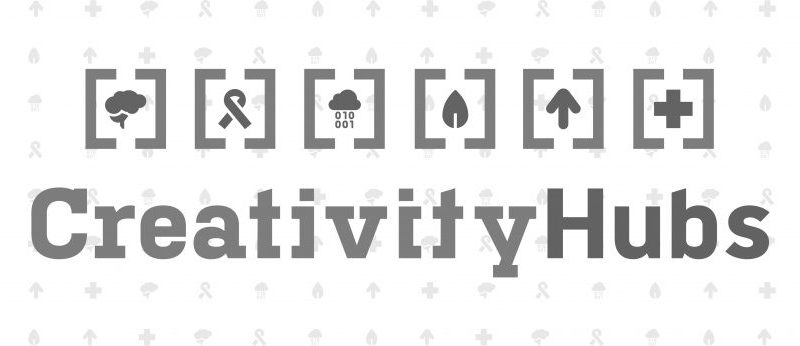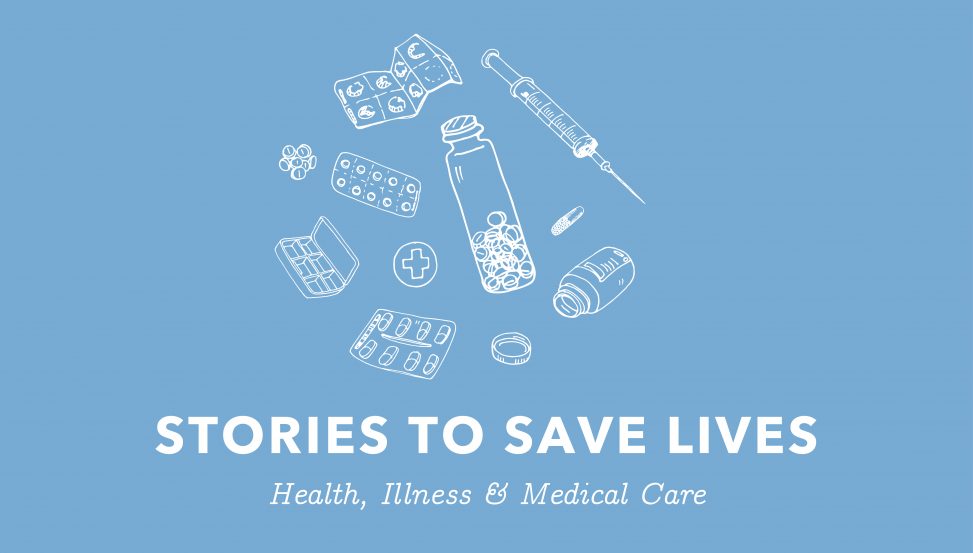
The Southern Oral History Program launches a major research initiative — to collect oral histories in rural North Carolina communities that inform health care research, practice and policy.
Maddy Kameny had read research about the prejudice that African-American women often face when expressing their health concerns. But she found it nonetheless harrowing to hear a Dunn patient’s personal account.
“She had extremely high pain levels, but her pain was not taken seriously,” recalled Kameny, a master’s candidate in the UNC Gillings School of Global Public Health. “When she demanded that her situation be investigated more seriously, they found she had a bad gallbladder that had to be removed. It had been bad for a long time.”
The patient’s story is one of 40 captured by UNC-Chapel Hill graduate and undergraduate students last summer as part of a major new interdisciplinary research initiative of the Southern Oral History Program (SOHP) in the College of Arts & Sciences.
Since 1973, SOHP has brought history to life through more than 6,000 interviews with Southerners, from politicians to activists, business owners to millworkers, educators to artists. Archived online and at Wilson Library’s Southern Historical Collection, the interviews offer a rare glimpse into the lived experiences of people and the South over nearly a century.
The new research initiative aims to uncover how Southerners have experienced health care and interacted with the medical community throughout their lives. The stories will be used to inform research, practice and policy by helping health care providers develop more effective interventions, policymakers improve the health care system and patients experience better health.
“We dare to hope that we can use history to help save lives,” said SOHP Director Rachel F. Seidman.
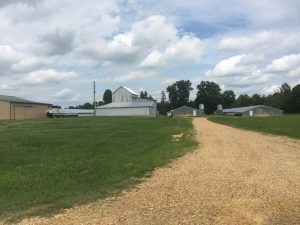
Cardiologist’s research sparks collaboration
SOHP’s focus on health began with a phone call Seidman received in 2016 from UNC cardiologist Ross J. Simpson Jr., who leads SUDDEN, a research program investigating sudden unexpected death among adults ages 18-64 that occurs outside of a hospital.
“Our key finding was that sudden death is common. In Wake County, it accounts for 10 percent of all deaths under 65,” Simpson said. “We’ve been developing a data set trying to understand why people die suddenly and unexpectedly so that we can develop interventions.”
Simpson and colleagues looked across campus for help, eventually discovering the SOHP.
“Ross asked if oral history could help,” Seidman recalled. “I was so struck by the notion of a cardiologist asking me if we could help him. I said, ‘I don’t know but let’s find out.’”
The two looked first to SOHP’s archives. Simpson and then-SOHP Director Malinda Maynor Lowery received a 2017 UNC Fostering Interdisciplinary Research Explorations Grant to fund the effort. The research team identified nearly 200 SOHP interviews containing health-related narratives and mined a subset to learn more.
Several themes emerged that offered insights into why sudden death might occur. Interviewees described a lack of proactivity in seeking medical help, a sense of surrender to what they felt was inevitable illness and death, and one-way communication between doctor and patient.
While the research revealed interesting anecdotes, it pointed to a need for focused oral history research that dug deeply into questions previous researchers did not ask about people’s lives.
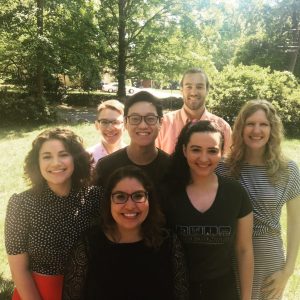
Personal experiences fuel the flame
At the same time Seidman began collaborating with Simpson, events in her own life brought the issue of health care to the fore. Her daughter, a public policy major at UNC with a passion for rural health care, interned at CommWell Health. The community health clinic opened in 1977 to serve migrant workers but now provides comprehensive health and wellness services across southeastern North Carolina.
At her daughter’s urging, Seidman visited the clinic’s Dunn location. “I was so impressed by the work they were doing and their holistic approach to health care,” Seidman said.
Meanwhile, Seidman’s brother-in-law developed leukemia, battled it for more than a year and died. “While I was in the hospital with him, I was struck by that experience of having to advocate for your loved ones,” she said. “I realized how difficult it must be to advocate across cultural, racial and class boundaries.”
With credentials in history, not health or medicine, Seidman reached out across campus to faculty and graduate students from nursing, public health, social medicine, medical anthropology and other disciplines to serve on an advisory team that would inform the research project.
Seidman and colleagues received support for last summer’s research from the Critical Issues Project Fund of UNC’s Humanities for the Public Good, an initiative funded in part by the Andrew W. Mellon Foundation to catalyze publicly engaged humanities scholarship. The Center for the Study of the American South, of which SOHP is a part, provided some funding, and SOHP also tapped funds provided by program donors Robert Conrad and the Plambeck and Vogel families.
The project launched in May and recruited seven graduate and undergraduate students from a range of disciplines — literature, public health, public policy, history and geography — to interview and videotape residents and health care workers in Harnett, Orange, Stanly and Warren counties.
An oral history boot camp trained students in best practices, and students, community partners and advisers developed questions that would frame their interviews — about people’s lives, families and communities over time. Community partners in the four counties then connected interns with people to interview.
SOHP graduate field scholars are transcribing and archiving the interviews this academic year to help Seidman’s team plan the next phase. She hopes to secure funding for a three-to-five-year research project that will collect as many as 250 interviews.
“I’m hopeful that practitioners and medical care providers will be able to learn — just like Ross and his team — about their communities and what they need and want from the health care system,” Seidman said.
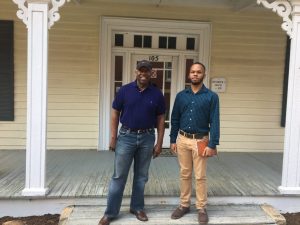
Students, clinicians, academics benefit
For Kameny, who conducted the interviews with employees and clients of CommWell Health, the experience has opened her eyes to the value of oral history and interdisciplinary collaboration.
“While big data can tell us a lot … understanding the richness of the individual experience before developing initiatives is vital,” Kameny said.
Public health Ph.D. student Caroline Efird, who conducted interviews of residents in Stanly County, was struck by stories shared by a 94-year-old woman who recalled working 12 hours a day in the fields of her parents’ tobacco farm and only recently stopped mowing her three-acre lawn and climbing a ladder to clean gutters.
“Connecting with communities on the face-to-face level is something that I hope to maintain throughout my career,” Efird said. “I hope that these stories will be shared with policymakers at the state level.”
Lisa McKeithan, director of HIV-related programs and services at CommWell Health, said the oral history project provides an opportunity to learn about the people she serves and, hopefully, to reach more people with greater impact.
“Knowing our patients, their attitudes, their beliefs and core values, and their hopes for the future will give us further insight into how we can provide better care for them,” McKeithan said.
For Simpson, the cardiologist who contacted Seidman, the experience has opened the door to a new approach for problem solving.
“We approach problems differently — we don’t even use the same language,” he said. ”It was really invigorating for me to see how we could work together.”
Seidman agreed.
“There are a lot of people at the University who are interested in the interdisciplinary work of bringing humanities to bear on questions of health and wellness,” she said. “Part of my hope for this project is that it can continue to be a place where we can learn from each other, share our work and build toward something even bigger.”
Listen to an interview with Seidman and Simpson on WUNC’s “The State of Things.”
By Cyndy Falgout
Published in the Fall 2018 issue | Features
Read More
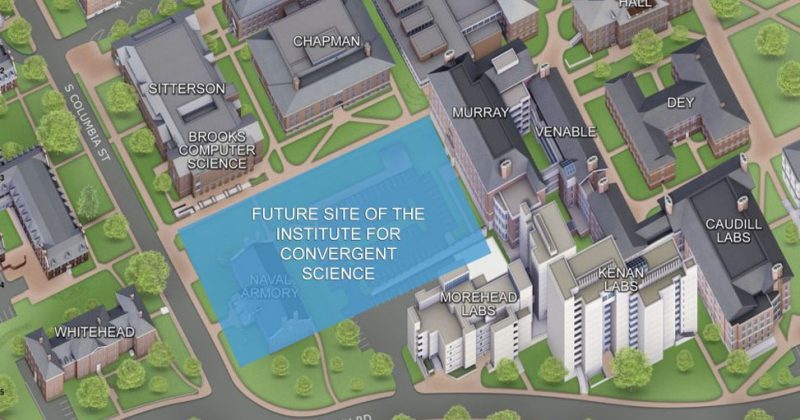
Institute for Convergent Science will speed process from discovery to impact
In fall 2017, UNC-Chapel Hill announced, as part of the…
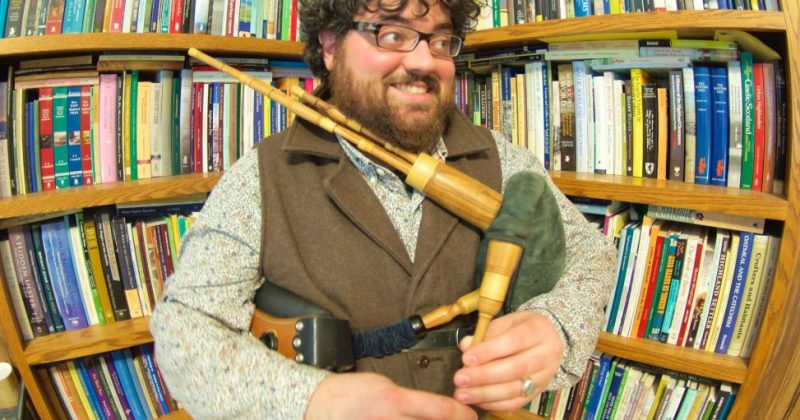
Scottish Gaelic studies will highlight N.C. ties
Visiting lecturer Tiber Falzett will share his love of an…


